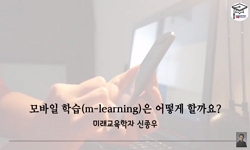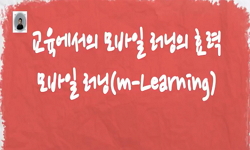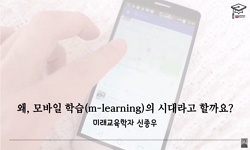The present study investigated learner perceptions and preferences of device type in a technology-assisted vocabulary learning context. Forty-five university students were asked to complete online vocabulary learning exercises outside their classroom ...
http://chineseinput.net/에서 pinyin(병음)방식으로 중국어를 변환할 수 있습니다.
변환된 중국어를 복사하여 사용하시면 됩니다.
- 中文 을 입력하시려면 zhongwen을 입력하시고 space를누르시면됩니다.
- 北京 을 입력하시려면 beijing을 입력하시고 space를 누르시면 됩니다.

Learner Perceptions and Preferences of Device Type in Vocabulary Learning = Learner Perceptions and Preferences of Device Type in Vocabulary Learning
한글로보기https://www.riss.kr/link?id=A100126427
- 저자
- 발행기관
- 학술지명
- 권호사항
-
발행연도
2014
-
작성언어
-
- 주제어
-
KDC
700
-
등재정보
KCI등재
-
자료형태
학술저널
- 발행기관 URL
-
수록면
37-68(32쪽)
- 제공처
-
0
상세조회 -
0
다운로드
부가정보
다국어 초록 (Multilingual Abstract)
The present study investigated learner perceptions and preferences of device type in a technology-assisted vocabulary learning context. Forty-five university students were asked to complete online vocabulary learning exercises outside their classroom for 10 weeks. Then they completed a survey regarding the device they most often used, disadvantages of a particular device, distractions they experienced, their perceived mental focus, and locations where they completed the exercises. Results showed that half of the participants used PCs and half used smart phones. Those who often used PCs preferred a bigger screen and more comfortable use. Those who often used smartphones preferred a portable device for learning. About 56%of the participants indicated that lack of portability was the most significant disadvantage of PCs. About44% suggested that the biggest disadvantage of smart phones was a small screen size. Regarding distractionand mental focus, around 35% reported that PCs better facilitated focus, whereas about 15% indicated that smartphones were better facilitators, and about 50% said there was no significant difference. PC users reported more types of distractions, whereas smartphone users reported fewer types of distractions but each with more frequency. Regarding preferred locations, PC users preferred personal rooms, whereas most smart phone users did exercises while commuting.
동일학술지(권/호) 다른 논문
-
The Effectiveness of Automated Essay Scoring in an EFL College Classroom
- 한국멀티미디어언어교육학회
- ( Ji Eun Kim )
- 2014
- KCI등재
-
게임화의 학습효과: 상대평가제로 운영한 대학 교양영어 수업 사례연구
- 한국멀티미디어언어교육학회
- 김상경 ( Sang Kyung Kim )
- 2014
- KCI등재
-
코칭을 통한 영어학습에서 블로그를 활용한 성찰일지의 역할 탐색
- 한국멀티미디어언어교육학회
- 김주연 ( Joo Yun Kim )
- 2014
- KCI등재
-
인터넷 영어 동화 기반의 마인드맵과 요약하기 활동이 초등학생의 어휘 및 쓰기 학습과 태도에 미치는 영향
- 한국멀티미디어언어교육학회
- 서영지 ( Young Ji Seo )
- 2014
- KCI등재





 KISS
KISS





